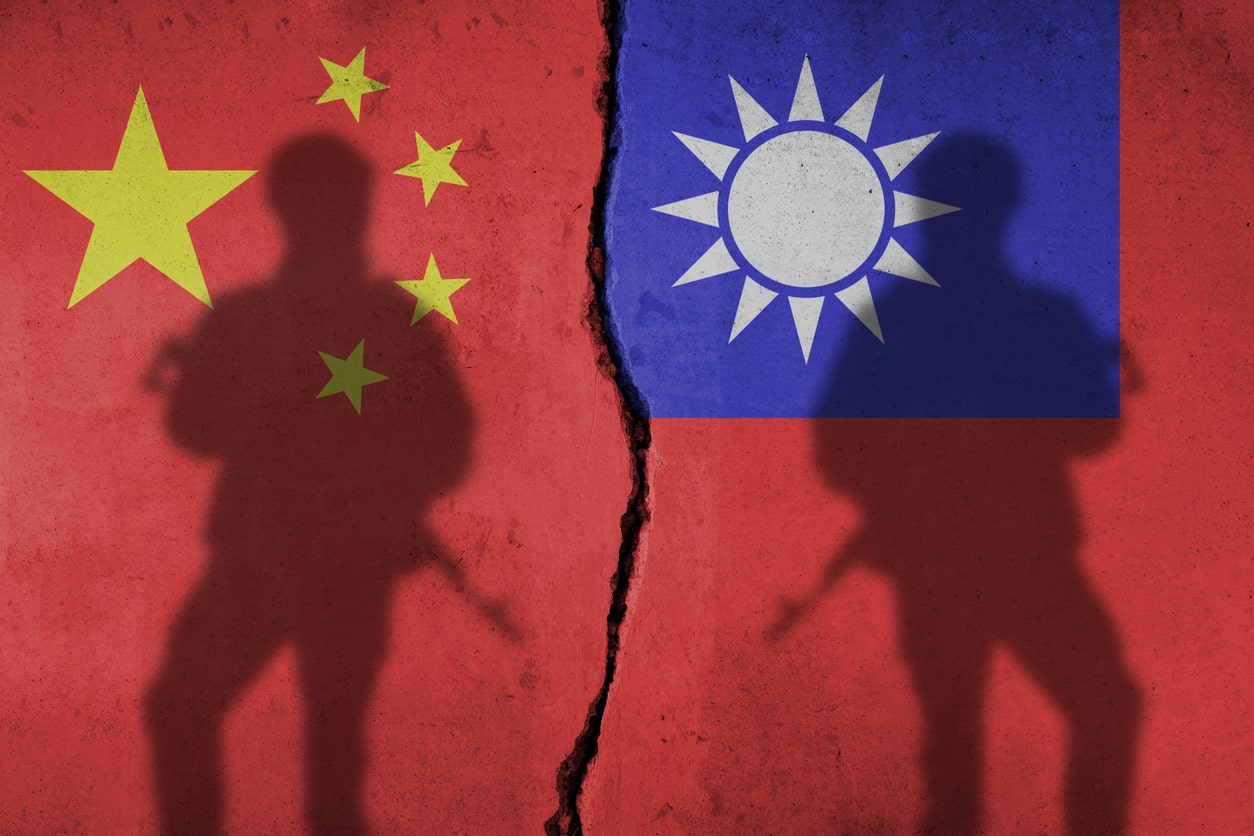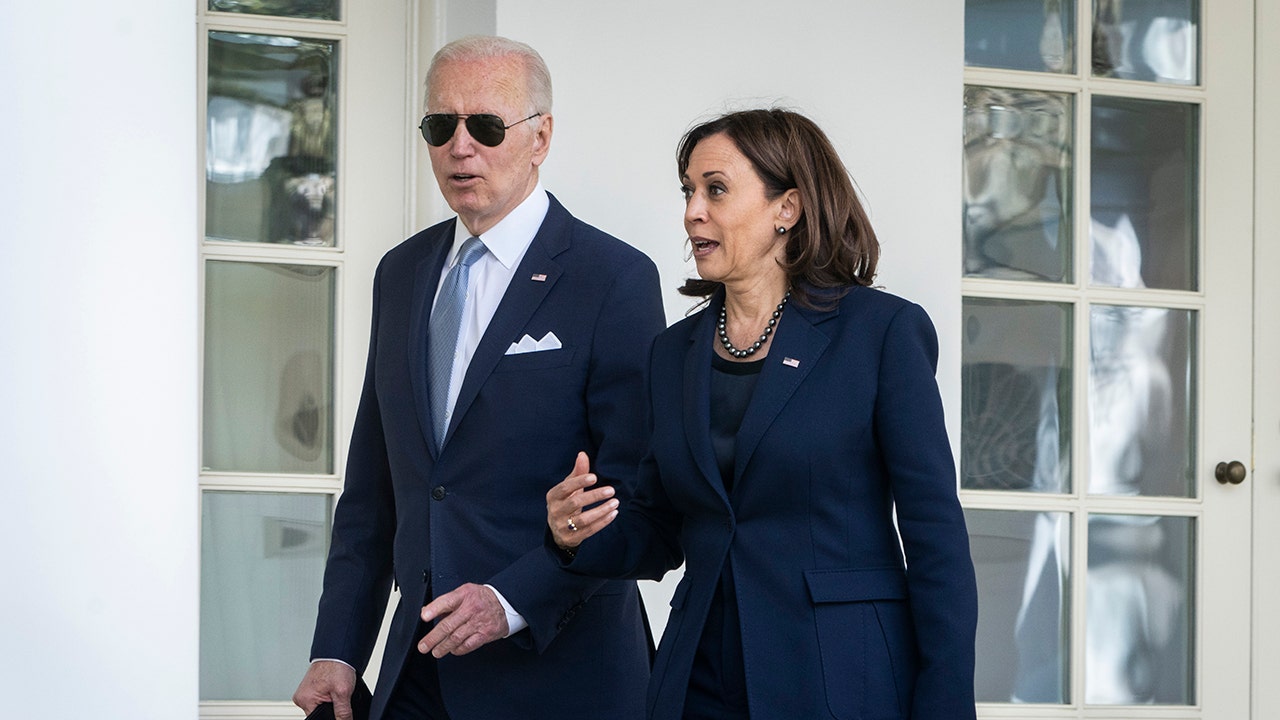KAOHSIUNG — Virtually every day, the People’s Republic of China does something unprecedented — its coast guard briefly boarding a Taiwanese tourist boat, flying military aircraft ever closer to Taiwan or increasing harassment of Taiwanese fishing boats in the South China Sea.
“This is a problem,” says Dean Karalekas, author of “Civil-Military Relations in Taiwan: Identity and Transformation.” “Because these unprecedented actions are creating a new normal. Beijing hopes that we (the West) will sit by and watch as they take over Taiwan, just as we did when they used these same salami-slicing tactics to take over the South China Sea.”
The world began noticing more of China’s hostile actions following the visit to Taiwan by former U.S. House Speaker Nancy Pelosi in 2023, but the strategy has been in place for some time.
“China’s plan to ‘normalize’ military encroachments was planned long before Pelosi’s visit,”Taipei Times columnist and political commentator C. Donovan Smith told Fox News Digital. “The military exercises were far too complex and logistically complicated to have been planned in the short span of time between the announcement of her trip and her arrival in Taiwan.”
President-elect William Lai votes in southern Taiwan’s Tainan city Jan. 13, 2024. (AP Photo/Ng Han Guan)
Surrounding Taiwan in a mock “quarantine” and performing missile “tests” in 2023 was also intended to push Taiwanese voters toward politicians and parties more friendly to China. But, as has been the case in the last three elections here, Beijing’s ploys were ineffectual. Taiwan in January elected the incumbent vice president, William Lai, to take over from two-term President Tsai Ing-wen. Both Tsai and Lai are members of the Democratic Progressive Party (DPP).
The incoming Taiwan president has repeatedly pledged to make no changes to policies in place over the last eight years. Beijing, however, sees William Lai (Lai Ching-te) as a “splittist” and a supporter of Taiwan independence.Lai previously did voice support for independence but has tried to walk that back. China, however, does not forgive nor forget. Many political experts believe Beijing will ratchet up pressure as Lai enters office later this month.
Chinese President Xi Jinping waves at an event to introduce new members of the Politburo Standing Committee at the Great Hall of the People in Beijing Oct. 23, 2022. (AP Photo/Andy Wong, File)
A recent example of China’s attempts to establish this “new normal” is changes to airspace rules. China is close to finishing a massive new airport serving Xiamen in Fujian Province. Just 6.2 miles away, however, sits the island of Kinmen, which has remained a part of the Republic of China (ROC), better known as Taiwan, since 1949.
Kinmen Airport is strategically important for Taiwan. In 2015, the two sides worked out a deal to change a flight path that was a bit too close for Taiwan’s comfort. But in February, Beijing unilaterally backed out of the deal, announcing that, from May 16, new air routes would begin operating to “further optimize airspace” around the area.
FOR CHINA’S MILITARY PLANNERS, TAIWAN IS NOT AN EASY ISLAND TO INVADE
A fighter jet flies in the direction of Taiwan as seen from the 68-nautical-mile scenic spot, the closest point in mainland China to the island of Taiwan, in Pingtan in southeastern China’s Fujian Province Aug. 5, 2022. (AP Photo/Ng Han Guan)
Few China watchers think China picked the day arbitrarily, says Karalekas.
“Beijing has a pattern of testing new leaders of enemy states. They tested Bush with the EP-3E spy plane incident. They tested (then-Japanese prime minister) Naoto Kan with the Senkaku boat collision. We can expect them to test Lai by creating some sort of mini-crisis around the time he takes office on May 20.”
“I think China is really ramping up threats,” Eric Hsu told Fox News Digital. Hsu lives in southern Taiwan’s biggest city, Kaohsiung, has worked on historical restoration projects and hosts a podcast on Taiwan history.
He says he isn’t only worried about military hardware, but also what he termed, “brainwashing videos and moves by KOLs,” (Key Opinion Leaders, a term used to describe internet influencers).
Military vehicles equipped with a U.S.-made TOW 2A missile during a live fire drill in Pingtung, Taiwan, July 3, 2023. (REUTERS/Ann Wang)
Hsu places much of the blame at the feet of local opposition parties seen by many as more friendly to Beijing. Describing the current domestic political situation, he said Taiwan faces “not just an enemy at the gate, but also enemies within.” South Taiwan is a DPP stronghold, but not everyone in the south agrees that the opposition parties are the problem.
Another resident of Kaohsiung, a self-employed businessperson and mother, Ms. Lin, thinks the DPP hasn’t been sincere in reaching out to China.
“They’ve had eight years, and now they will get at least another four,” Lin told Fox News Digital. “What Taiwan needs are brave leaders, people willing to try new solutions, and I don’t see any such people in the current DPP leadership.”
TAIWAN PRESIDENT-ELECT CHOOSES NEW FOREIGN, DEFENSE MINISTERS AS CHINA ANNEXATION THREATS INTENSIFY
Soldiers disembark from AAV7 amphibious assault vehicles during the Han Kuang military exercise, which simulates the China’s People’s Liberation Army invading the island July 28, 2022 in Pingtung, Taiwan. (Annabelle Chih/Getty Images)
The main opposition party, the Kuomintang (KMT), denies it is “China-friendly” and instead says it is “peace-friendly.” Chinese dictator Xi Jinping has met with the KMT’s Ma Ying-jeou twice, first in Singapore in 2015 when Ma was in office as ROC (Taiwan) president. It was the first time since the end of WWII top leaders from China and Taiwan sat in the same room. Each side in 2015 chose to ignore official titles and address each other as “Mr. Xi” and “Mr. Ma.” On April 10,, “Mr. Xi” and former Taiwan president “Mr. Ma” met again, this time in Beijing.
Some experts see such meetings between the KMT and China favorably, arguing that any dialogue is good and – if nothing else – provides a way for China to save face as it continues its policy of mandatory “reunification,” which China now says may need to be achieved by force. Others in Taiwan and abroad see Ma’s meetings as straying far too close to an acceptance of the idea that Taiwan is a part of China.
A Chinese warship sails during a military drill near the Taiwan-controlled Matsu Islands near the Chinese coast April 8. (Reuters/Thomas Peter)
As it stands, the ruling DPP says it’s content with the status quo, including keeping Taiwan’s official name, the Republic of China. The KMT is generally more in favor of talks with Beijing under a mutual respect “consensus” idea that boils down to agreeing that both sides are “China,” but each side is free to interpret what this “one China” means.
The problem with the KMT’s thinking, central Taiwan-based newspaper columnist and political commentator Michael Turton told Fox News Digital, is that “Xi’s goal is the complete subjugation of Taiwan, just like Hong Kong. Two of China’s ambassadors abroad have already indicated that Taiwanese opposed to Beijing rule will be shipped off to concentration camps. Given this goal, how can there ever be dialogue with mutual respect?”
Eryk Michael Smith is a Taiwan-based correspondent who since 2007, has worked both as a broadcast journalist for the island’s only English-language radio station, ICRT, as well as with numerous other publications and local news outlets. Smith’s journalism focuses on Taiwan-China relations, local politics, as well as science and technology developments in the greater China region. He is based in Taiwan’s largest southern city, Kaohsiung. He can be followed @ErykSmithTaiwan



